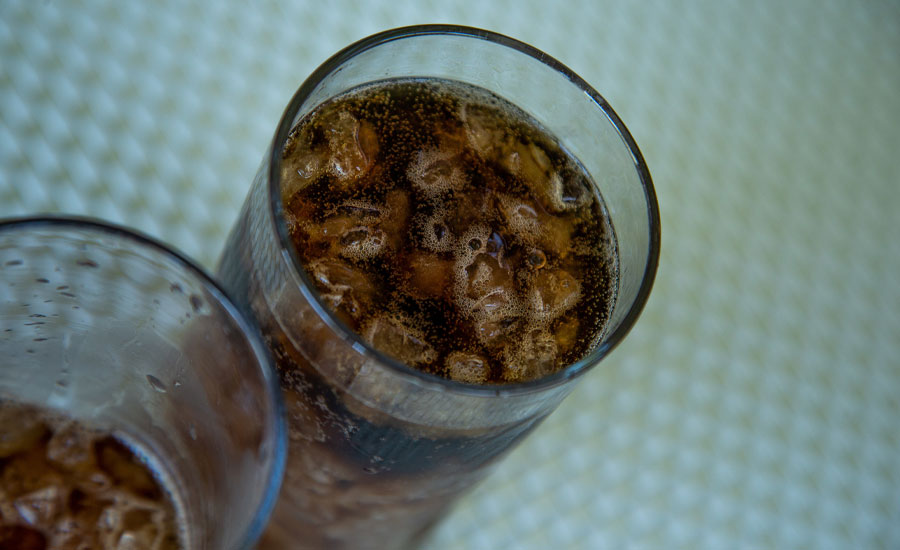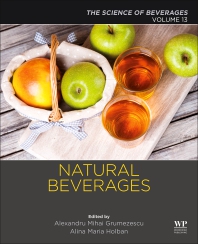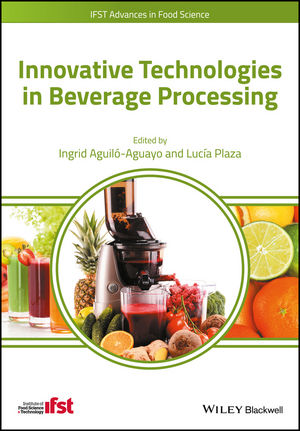Beverage-makers turn to natural sweeteners as consumers aim to lower sugar intake
Brands must deliver on taste, health expectations

In Ariana Grande’s 2018 song “Sweetener,” she talks about making bad situations more positive. “When life deals us cards / Make everything taste like it is salt / Then you come through like the sweetener you are / To bring the bitter taste to a halt,” she sings.
Grande sings about coming through like sweetener to stop bitter tastes, and that is exactly what beverage-makers are trying to do: bring the sweetness without any bitterness. However, it is not an easy task, especially as consumers increasingly are opting for less sugar.
Thom King, CEO and chief food scientist at Portland, OR-based Icon Foods, observes how consumers’ opinions on sugar consumption are influencing the sweetener market.
“Based on all of the media surrounding the detrimental effects of consuming too much sugar — including metabolic disease like diabetes and neurodegenerative disease — sugar is public enemy number one,” he says. “This has increased the velocity of low-sugar and no-sugar products on shelves. High sugar beverages especially have seen a decline in product movement through retail.”
King adds that the Transparency, Readability, Understandability, Truth and Helpfulness (TRUTH) in Labeling Act will increase this new level of consumer awareness, as it will shift the U.S. Food and Drug Administration (FDA) guidelines on front-of-pack call outs for added sugar. He suggests that this will further expose products that are high in sugar.
Alyssa Leyva, North America product line manager for high intensity sweeteners at Cargill, Wayzata, MN, also notes that today’s shoppers are “more aware of how much sugar they’re consuming,” especially given recent label changes.
Leyva explains that consumers are trying to limit or avoid sugar in their diet and consider “low in sugar” to be an indicator of healthy foods. Proprietary consumer research from Cargill finds sugar reduction to be a top priority for consumers, with four in 10 saying they try to avoid sugar, she notes.
“We’re also starting to see consumers’ taste for sweetness adjust, with indications that, in some products, consumers are open to products that are less sweet,” Leyva states. “Beverage brands are tracking this shift in preference, and as a result, we continue to see strong growth in new product launches made with zero-calorie sweeteners like stevia and erythritol, which enable sugar reduction without sacrificing great taste.”
Casey McCormick, vice president of innovation at Sweegen, Santa Margarita, CA, shares similar sentiments. He says that consumers’ increasing emphasis on actively limiting sugar intake is really shaping the sweetener market.
“This growing awareness of health-conscious choices is steering consumers toward sugar-free or reduced-sugar beverages that offer sweetness without the calorie load associated with traditional sugars or the baggage associated with the use of artificial sweeteners,” McCormick expresses.
Sweeter solutions
As sugar reduction trends continue to impact the market, expert highlight how various sweetener solutions work to support the needs and wants of consumers.
Icon Foods’ King feels that the best sweetener solutions are those that combine natural sweeteners (high-intensity sweeteners, bulking sweeteners, fibers and/or sweetness modulators) that work together to “emulate the mouthfeel and flavor profile of sugar in the beverage.”
He says that stevia technology has come a long way. In the past, King suggests that beverage manufacturers were not using stevia correctly, using it without other sweeteners like erythritol or allulose.
“But the new bio-converted Reb M stevia extract has the most neutral flavor of any of the stevia extracts introduced to market,” he explains. “If you go with organic stevia leaf extract, yes, it’s more expensive, but you can’t get anything more clean label than that. We have formulated several great-tasting beverages in the past six months using Reb M stevia as the sole sweetener that are at-market now and crushing it.”
King notes that this works best in light beverages, like lemonade or flavored tea, where a thinner mouthfeel is already expected.
Cargill’s Leyva shares that beverage brands are tracking consumer attitudes toward sugar. In response, brands are offering products that keep sugar levels in check.

“Many of those were made with zero-calorie sweeteners like stevia and erythritol — and for good reason — beverages made with those sweeteners continue to outperform the beverage category as a whole,” she says. “Alongside the steady stream of new product introductions made with stevia, we’re also seeing brands address consumer concerns about sugar and calories through a step-change in their formulations. With this approach, product developers can slowly adjust their formula to maintain taste while also moving toward a more consumer-friendly label.
“To support these efforts, Cargill offers a broad portfolio of stevia sweeteners, including options like Truvia and ViaTech stevia leaf extracts, which are sourced from stevia leaves, as well as our premier EverSweet stevia sweetener, made via fermentation,” Leyva continues.
Angie Shultz, North America polyols product line manager at Cargill, adds that formulators might opt for zero-calorie Zerose erythritol to support sugar reduction.
“Erythritol works as an excellent complimentary and synergistic sweetener to high-intensity sweeteners, which is why you frequently see stevia and erythritol used together in retail beverages,” she says. “Erythritol brings a boost in upfront sweetness and a more rounded, sugar-like sweetness profile. It can also impact body and mouthfeel, which can be missing in beverage with no added sugar.”
Shultz also notes that erythritol can offer a net carb benefit as well, as it and other polyols are considered carbohydrates and counted as part of total carbohydrates on nutrition facts panels by law.
Sweegen’s McCormick says the demand for sugar reduction is “fueling a surge” in the sweetener market. This surge has create an interest in not just sweeteners, but also in exploring better taste, which he notes, can be accomplished with advanced taste modulation technology.
“This shift is driving the sweetener market toward a diverse range of forward-looking solutions, empowering consumers with healthier options and fostering taste innovation within the industry,” he adds."
Sarah Diedrich, senior marketing director of global sweetening texturizing at ADM, Chicago, also shares how consumer preferences on sugar have impacted the sweetener market.
“A majority of consumers are looking to reduce their sugar intake, with our research showing that eight in 10 U.S. adults are limiting sugars in their diets,” she says. “Of those consumers, 83% find sugar reduction important in beverages. On top of that, many consumers are seeking beverages that fall into categories such as low-calorie, sugar-free or naturally sweetened.”
Diedrich goes on to note that changing dietary preferences and the expectation for clean-label, naturally derived ingredients have furthered interest in sweeteners from natural sources.
Rich Steward, project leader, sweetener tech service at Ingredion Inc., Westchester, IL, explains that stevia “is a great sweetener solution option for beverage-makers.”
“It is naturally sourced, provides excellent cost in use and the newest glycosides are very clean tasting,” he says. “Allulose is also a fantastic option for adding sweetness and mouthfeel."
Additional trends
Aside from sugar reduction trends, experts note that there are other consumer trends contributing to the usage of natural, zero-calorie sweeteners.
Cargill’s Leyva suggests that, while “taste is paramount,” consumers are paying attention to other factors. If a product does not taste great, however, she says it will not get a second chance.
“Interest in non-artificial ingredients, such as stevia, erythritol, monk fruit and allulose, remains strong,” she explains. “More than half of U.S. consumers ― 52% ― say no artificial sweeteners is an extremely or very important statement on food and beverage labels.”
Leyva also says that the impact of non-GMO claims appears to be waning amongst consumers.
“Broader trends around ingredient transparency and sustainability are increasingly relevant to sweeteners,” she explains. “There’s plenty of pressure for brands — regardless of their product category — to deliver products that consumers view not just as good for them, but also good for the planet. In today’s marketplace, sustainability matters, as does ethical sourcing practices.”
ADM’s Diedrich observes that individuals are increasingly prioritizing their holistic well-being, so a growing number of consumers are actively monitoring their blood glucose levels.
“A recent ADM Outside Voice survey showed that 57% of consumers in the United States reported taking specific measures to regulate their blood sugar,” she explains. “In addition to consumers taking action through increasing exercise and reducing carbohydrate intake, the survey found that 70% of these respondents are seeking to incorporate more low-sugar products into their diets, while 69% are striving to reduce or eliminate sugary beverages.”
As Leyva noted, Diedrich says that these respondents were unwilling to compromise on taste.
“Convenient and delectable ready-to-drink (RTD) options … that are low in sugar or sugar-free, can support consumer demands,” she adds.
Sweegen’s McCormick shares that the role of sugar in beverages goes beyond sweetness, but also “serves to mask off-notes and impart a smoother, more palatable experience.”
“In the realm of alcoholic beverages, the prevailing trend is toward indulging in premium, ready-to-drink cocktails that offer a delightful experience without the regrettable aftermath associated with high sugar content, which also serves to mask alcohol burn,” he says.

A natural twist in taste
As beverage-makers search for natural, zero-calorie sweeteners, they are gravitating toward some more than others.
Icon Foods’ King feels that erythritol isn’t the best option as a sweetener for a hydration system, adding that the negative press on erythritol resulted in beverage formulators opting for a replacement. King explains that this is where using sweetness modulators can help.
“Using a combination of thaumatin — which comes from the West African katemfe berry and is about 2,000 times sweeter than sugar — in combination with Reb M stevia makes a very good modulation system to enhance the sweetness of your beverage without any off-notes,” he explains. “We’ve used this in combination with cassava root (also known as soluble tapioca fiber) and had a result that tastes almost identical to sugar.”
King goes on to say that Icon’s ThauSweet DRM, a blend of thaumatin, Reb M stevia and fibers, in combination with allulose can provide a “magical elixir.”
ADM’s Diedrich states that beverage-makers are looking for the right sweetening systems to meet labeling requirements and deliver best taste performance.
“The sweetening systems depend greatly on the product formulation and end goals, from sugar reduction and clean label targets to cost optimization, the sensory experience and more,” she says.
Ingredion’s Stewart notes the benefits of using hybrid sweetening systems, which have seen a proliferation in beverage formulations.
Sugar provides many things ― sweetness, mouthfeel, structure and energy in the form of calories,” he explains. “Replacing all this functionality while reducing the caloric load is difficult to achieve with one ingredient. Hybrid systems provide more benefits than using one ingredient alone.”
Stewart says that sugar replacers often provide high potency sweetness without mouthfeel or only some sweetness and some mouthfeel, but there usually isn’t one ingredient that can provide all the functionality of sugar.
“By combining ingredients, you can more closely replace all the functionality of sugar,” he states.
Icon Foods’ King feels similarly.
“While on their own, some high-intensity sweeteners like stevia and monk fruit have off-notes, when blended together, they cover each other’s off-notes for a neutral taste,” he says. “And because those high-intensity sweeteners are sweeter than sugar, combined with bulking sweeteners like allulose, the blend can achieve sweetness parity with sugar.
Smaro Kokkinidou, principal food scientist at Cargill, says that sugar reduction can be complicated, making it necessary to use sweetener blends.
“Another factor pushing formulators toward hybrid sweetening systems is the proliferation of beverages infused with health-promoting ingredients like vitamins, minerals, botanicals and adaptogens,” she explains. “These ingredients often come with complex flavor challenges. … Sweetener blends can help manage those flavor hurdles and more effectively deliver a desirable sweetness profile and the appropriate intensity.”
Looking for a reprint of this article?
From high-res PDFs to custom plaques, order your copy today!









